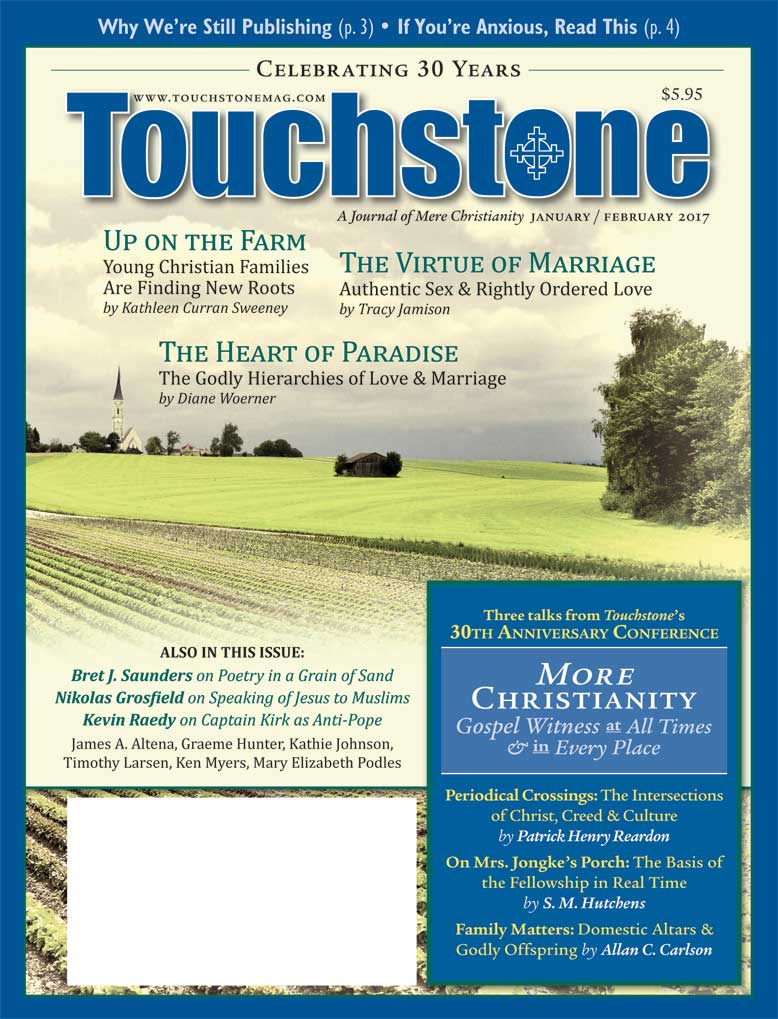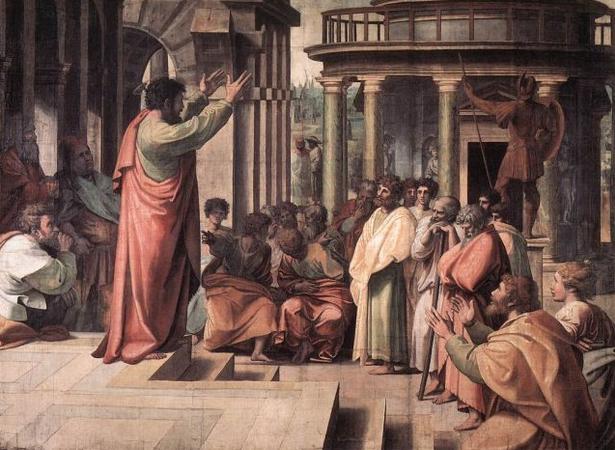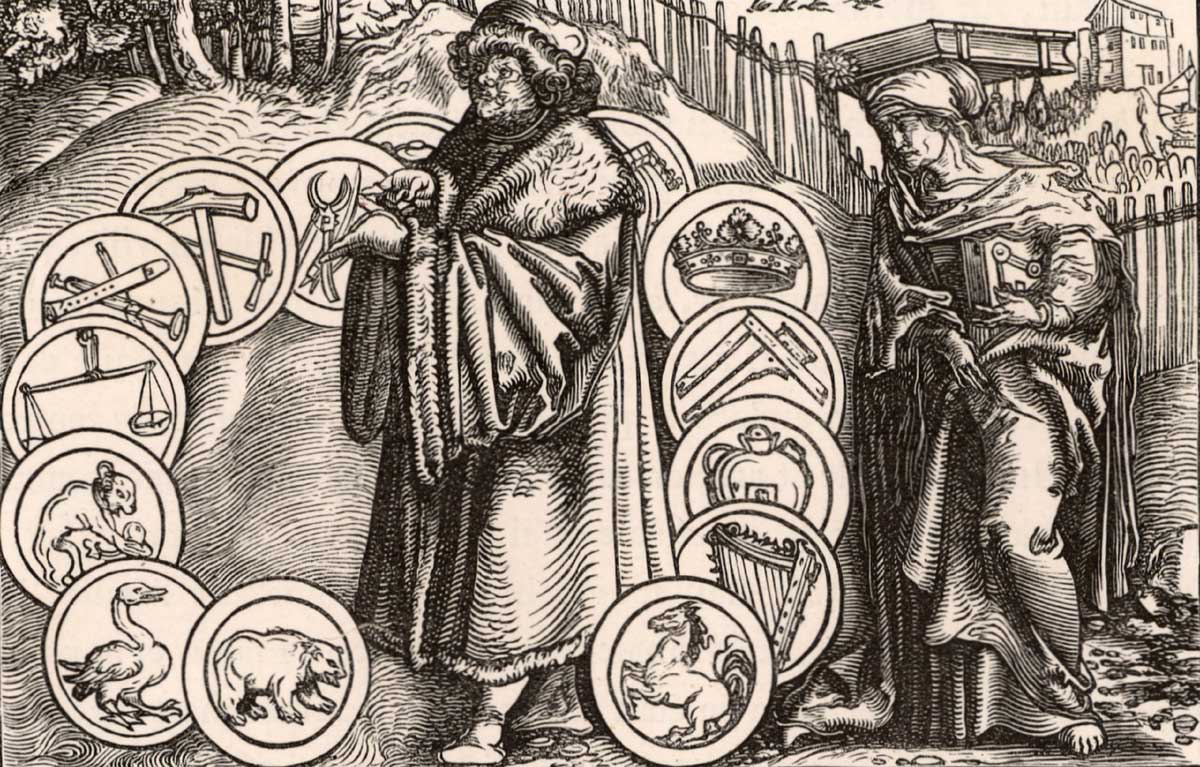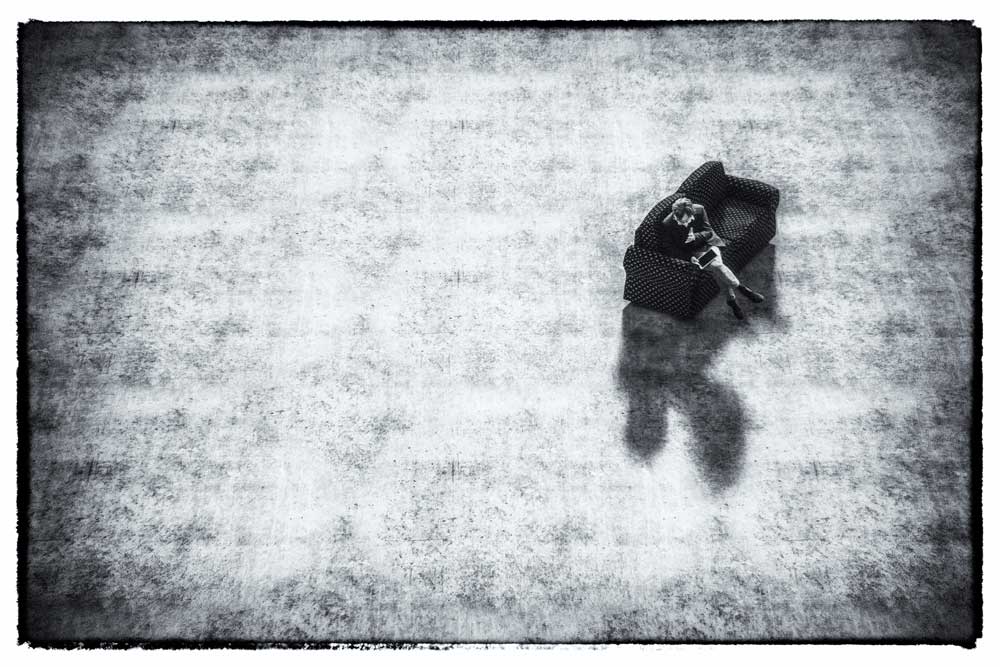Editorial
Infidelity & Fidelity
Keep Calm, Carry On, Even If It Is
"Satan's Hour"
By any measure, today could be called the Age of Anxiety. Many fear the loss of religious freedom, civil rights, and decent jobs, the rise of global temperatures, the proliferation of nuclear weapons and their deployment, the spread of sharia law, and so on. Only a minority of Americans believe that their children and grandchildren will be better off than they are; most expect things to get worse.
While C. S. Lewis agreed in 1947 with his friend Don Giovanni Calabria, a Roman Catholic priest, that their time could be described as "Satan's hour," he later admitted to him that older people, such as they, "always think the world is worse than it was in their young days." Cardinal John Henry Newman admitted as much as well. In an 1873 sermon ("The Infidelity of the Future") he declared that "in every time serious and anxious minds, alive to the honour of God and the needs of man, are apt to consider no times so perilous as their own."
But can we objectively judge our own time? Rejecting multiculturalism, we believe we can judge one culture to be worse or better than another, so we should be able to judge one era as objectively worse or better than another. Newman notes, "All times have their special trials which others have not. And so far I will admit that there were certain specific dangers to Christians at certain other times, which do not exist in this time."
Newman's analysis of the times led him to expect a time when "writers and thinkers of the day do not even believe there is a God." He warned:
I think that the trials which lie before us are such as would appall and make dizzy even such courageous hearts as St. Athanasius, St. Gregory I, or St. Gregory VII. And they would confess that dark as the prospect of their day was to them severally, ours has a darkness different in kind from any that has been before it.
The special peril of the time before us is the spread of that plague of infidelity that the Apostles and our Lord Himself have predicted as the worst calamity of the last times of the Church. And at least a shadow, a typical image of the last times is coming over the world.
Has that shadow lingered? Lewis thought so in 1953: "I feel that very grave dangers hang over us. This results from the apostasy of the great part of Europe from the Christian faith," which he saw as worse than paganism. "For faith perfects nature but faith lost corrupts nature." Men have lost "not only the supernatural light but also the natural light" that the pagans had.
In Humility & Charity
Christians face both the challenge of witnessing to an apostate culture and "an almost universal hatred and contempt for the Flock of Christ," as Lewis put it, because the culture has willfully rejected Christianity already. Many of those whom we must still love with the gospel message intensely hate us and will accuse us of hatred because we will not hand over our heritage for defilement. This conflict will not go away.
T. S. Eliot, in a 1937 radio address, spoke of this conflict as normal and inevitable for Christians:
It must be said bluntly that between the Church and the World there is no permanent modus-vivendi possible. . . . Where there is a different morality, there is conflict. . . . But because Christian morals are based on fixed beliefs which cannot change they also are essentially unchanging: while the beliefs and in consequence the morality of the secular world can change from individual to individual, or from generation to generation, or from nation to nation. To accept two ways of life in the same society, one for the Christian and another for the rest, would be for the Church to abandon its task of evangelizing the world. For the more alien the non-Christian world becomes, the more difficult becomes its conversion.
Yet Eliot cautioned the Christian not to "conceive of the evils of the world as something external to himself," or to imagine that evil is only "incarnate in other people—a class, a race, the politicians, the bankers, the armament makers, and so forth—never in oneself." The genuine Christian "sees the need for converting oneself as well as the World." He concluded, "For only in humility, charity and purity—and most of all perhaps humility—can we be prepared to receive the grace of God without which human operations are vain."
Near the end of a later essay, "The Idea of a Christian Society," Eliot insisted, "We need to know how to see the world as the Christian Fathers saw it." Gildas the Wise, a sixth-century monk from the British Isles, was one such lesser-known father. In his treatise "On the Ruin of Britain," he writes of the pagan Anglo-Saxon invasions of Britain and cites the moral laxity and infidelity of Christians as their cause. During earlier periods of scarcity and suffering, the Christians had remained faithful and trusted in God. But in a recent time of prosperity, they had forgotten God. Rampant immorality, corrupt clergy, and selfish leaders plagued the land.
Yet Gildas refrained from recriminations. The spirit in which he wrote is exemplary:
Whatever my attempt shall be in this epistle, made more in tears than in denunciation, in poor style, I allow, but with good intent, let no man regard me as if about to speak under the influence of contempt for men in general, or with an idea of superiority to all, because I weep the general decay of good, and the heaping up of evils, with tearful complaint. On the contrary, let him think of me as a man that will speak out of a feeling of condolence with my country's losses and its miseries, and sharing in the joy of remedies.
Gildas viewed the world with the eyes of Christ. He sought a return to God's grace, the healing of souls, and an end to sin and its destruction. He loved his audience. He was a curator of the healing remedies of God that all men need for salvation.
We must correctly diagnose the maladies of our times without becoming bitter, resentful, or dejected by uncooperative patients who refuse the cure. We have a hard path to follow. The natural man rejoices when his course is easy and comfortable; he grieves when it is hard. We are commanded to choose the hard path—and to be cheerful about it.
The French Benedictine monk Jean LeClercq (d. 1993) wrote, "We must love the age we live in." How is this possible?
It should be evident that from the point of view of faith the best [age] for each of us is the one in which God has placed us, the one he has given us and we must give back to him, the one in which we can give ourselves to him. . . . God has chosen our age for us: this age that we received from him and that is ours is the only age we have at our disposal. We have no right to prefer another one.
Showing love for his own age, Don Calabria asked Lewis to "indicate saving remedies, so far as they seem opportune to you, for reparation and the removal of evil, for the renewal of courage, advancing the unity of hearts in charity."
Lewis replied that we must, certainly, spread the gospel, but we must also "recall many to the law of nature," for "who will take the medicine unless he knows he is in the grip of disease?"
For us, it is both a duty and a joy to share the remedies. Moreover, remedial work is needed, both inside and outside the household of God. We may be hated, but if it is for the sake of Christ's name, let us have no anxiety and be of good cheer as we take his light into the darkness. This is the age God has chosen for us. •
James M. Kushiner is the Director of Publications for The Fellowship of St. James and the former Executive Editor of Touchstone.
bulk subscriptions
Order Touchstone subscriptions in bulk and save $10 per sub! Each subscription includes 6 issues of Touchstone plus full online access to touchstonemag.com—including archives, videos, and pdf downloads of recent issues for only $29.95 each! Great for churches or study groups.
Transactions will be processed on a secure server.
more on culture from the online archives
more from the online archives
calling all readers
Please Donate
"There are magazines worth reading but few worth saving . . . Touchstone is just such a magazine."
—Alice von Hildebrand
"Here we do not concede one square millimeter of territory to falsehood, folly, contemporary sentimentality, or fashion. We speak the truth, and let God be our judge. . . . Touchstone is the one committedly Christian conservative journal."
—Anthony Esolen, Touchstone senior editor















